
Code: 09531614
Conceit of Humanitarian Intervention
by Rajan Menon
The post-Cold War period has witnessed a substantial increase in armed humanitarian interventions-the use of military force by one or more states, acting with or without the imprimatur of the United Nations, to stop mass atrocitie ... more
- Language:
 English
English - Binding: Hardback
- Number of pages: 224
Publisher: Oxford University Press Inc, 2016
- More about this

33.15 €
RRP: 37.71 €
You save 4.56 €

In stock at our supplier
Shipping in 9 - 13 days
You might also like
Give this book as a present today
- Order book and choose Gift Order.
- We will send you book gift voucher at once. You can give it out to anyone.
- Book will be send to donee, nothing more to care about.
More about Conceit of Humanitarian Intervention
You get 83 loyalty points
 Book synopsis
Book synopsis
The post-Cold War period has witnessed a substantial increase in armed humanitarian interventions-the use of military force by one or more states, acting with or without the imprimatur of the United Nations, to stop mass atrocities in another state, generally without its consent and thus without regard to its sovereignty. The increase has three sources: the emergence of the United States as a peerless power; Western states' embrace and propagation of universal human rights norms; and the international human rights movement's dogged and effective lobbying, using national and international forums, in support of the project. The campaigns in Bosnia, Kosovo, and Libya demonstrate the salience humanitarian intervention has now acquired in world politics. In this new era, states' sovereign immunity is being reevaluated and intervention based on universal human rights principles has become common. Rajan Menon's The Conceit of Humanitarian Intervention presents a trenchant challenge to the conventional wisdom on this policy. He contends that universalistic principles invoked in support of it tend to be fig leaves and that armed interventions to stop mass killing occur on a highly selective basis. The rationales offered to justify them more often than not derive from national interest and power politics. States, no matter how powerful, are unwilling to intervene (or resort to lesser measures) when the costs are prohibitive, even when killing unfolds on a massive scale, or when the perpetrators happen to be friends or allies . This short work will range broadly, moving from the Balkan intervention of the 1990s to the 2011 intervention in Libya. It also assesses the failed US intervention in Iraq and the post-9/11 war in Afghanistan to highlight the problems-ones relevant to humanitarian wars-that interventions encounter, and create, in the post-war phase. Menon is not advocating that we turn a blind eye to mass killing. Rather, he is asking us to look at the world as it rather than as we wish it to be, to recognize the extent to which power and national interest underpin humanitarian intervention, and to face up to the problems and unintended consequences humanitarian intervention creates rather than resorting to idealistic cliches that evade reality or that cloak states' self-interest and cynicism. As the slaughter in Syria demonstrates, power politics, not human rights norms, determine whether or not humanitarian intervention takes place. Despite the magnitude of mass killing in Syria, the United States and its allies decided to eschew intervention, judging it far too hazardous. Menon's searching critique of the theory and practice of armed humanitarian intervention will force us to see this grand project in a new light.
 Book details
Book details
Book category Books in English Society & social sciences Politics & government International relations
33.15 €
- Full title: Conceit of Humanitarian Intervention
- Author: Rajan Menon
- Language:
 English
English - Binding: Hardback
- Number of pages: 224
- EAN: 9780199384877
- ISBN: 0199384878
- ID: 09531614
- Publisher: Oxford University Press Inc
- Weight: 441 g
- Dimensions: 216 × 140 × 24 mm
- Date of publishing: April 2016
Trending among others
-

Prisoners of Geography
10.91 € -18 % -

World Order
11.31 € -23 % -
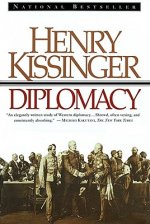
Diplomacy
16.37 € -26 % -

Political Order and Political Decay
15.26 € -22 % -

On Palestine
10.61 € -20 % -

Grand Chessboard
21.32 € -

Clash of Civilizations and the Remaking of World Order
16.77 € -17 % -

Lords of the Desert
9.59 € -22 % -

Who Rules the World?
11.21 € -24 % -

Adults In The Room
13.03 € -22 % -

Evolution of Cooperation
20.11 € -

Righteous Victims
20.41 € -18 % -

Tragedy of Great Power Politics
21.52 € -8 % -

America's Secret War
14.75 € -14 % -

OVERTHROW : AMERICA'S CENTURY OF REGIME
20.31 € -25 % -

African Politics: A Very Short Introduction
9.29 € -28 % -

PostCapitalism
10.91 € -23 % -
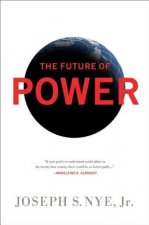
Future of Power
15.36 € -24 % -

Chasing the Flame
16.57 € -22 % -

Understanding International Relations
44.57 € -14 % -

Gideon's Spies
25.26 € -28 % -

Geopolitics and Geoculture
25.67 € -24 % -

Winter is Coming
21.02 € -8 % -

Governing the World
14.35 € -22 % -

Rethinking Fiscal Policy after the Crisis
145.47 € -

Writer, Sailor, Soldier, Spy
16.06 € -12 % -
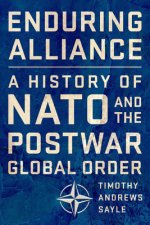
Enduring Alliance
35.58 € -

Oxford Handbook of the Use of Force in International Law
69.34 € -

Science Diplomacy: New Day Or False Dawn?
115.85 € -

Chaos in the Liberal Order
24.96 € -24 % -

Experts' Guide to International Protocol
70.56 € -9 % -

Legacy of Ashes
17.88 € -15 % -

Hundred-Year Marathon
15.56 € -26 % -
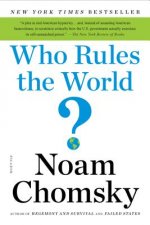
Who Rules the World?
14.14 € -

Dead Aid
16.67 € -8 % -
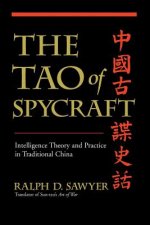
Tao Of Spycraft
36.39 € -

The Spy and the Traitor
10.81 € -24 % -
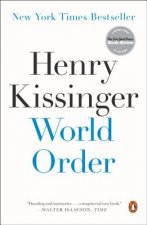
World Order
16.47 € -1 % -

Rise and Kill First
16.47 € -23 % -

Strategic Vision
14.75 € -27 % -

PEACE TO END ALL PEACE
20.72 € -23 % -

Naked Diplomat
13.33 € -28 % -

Planetary Cycles Mundane Astrology
19.30 € -

After the Empire
15.05 € -

Understanding the Intelligence Cycle
65.10 € -

My Nationalist Pony
30.32 € -1 % -

Revenge of Geography
18.39 € -20 % -

Countdown to Zero Day
16.87 € -16 % -

Oxford IB Diploma Programme: Global Politics Course Book
64.39 €
Collection points Bratislava a 2642 dalších
Copyright ©2008-24 najlacnejsie-knihy.sk All rights reservedPrivacyCookies







 15549 collection points
15549 collection points Delivery 2.99 €
Delivery 2.99 € 02/210 210 99 (8-15.30h)
02/210 210 99 (8-15.30h)